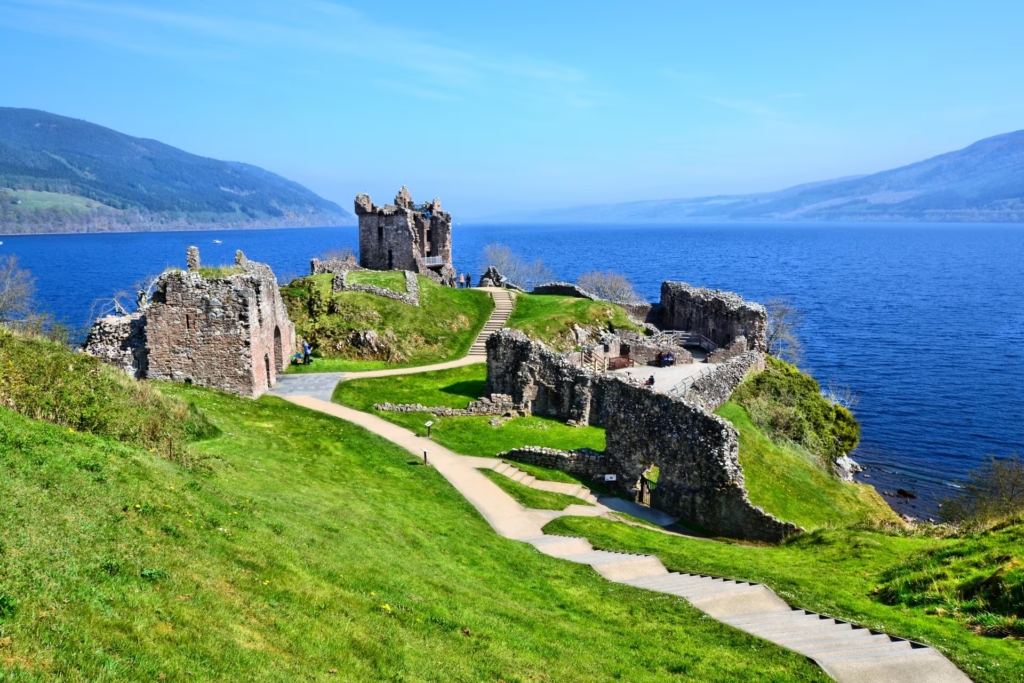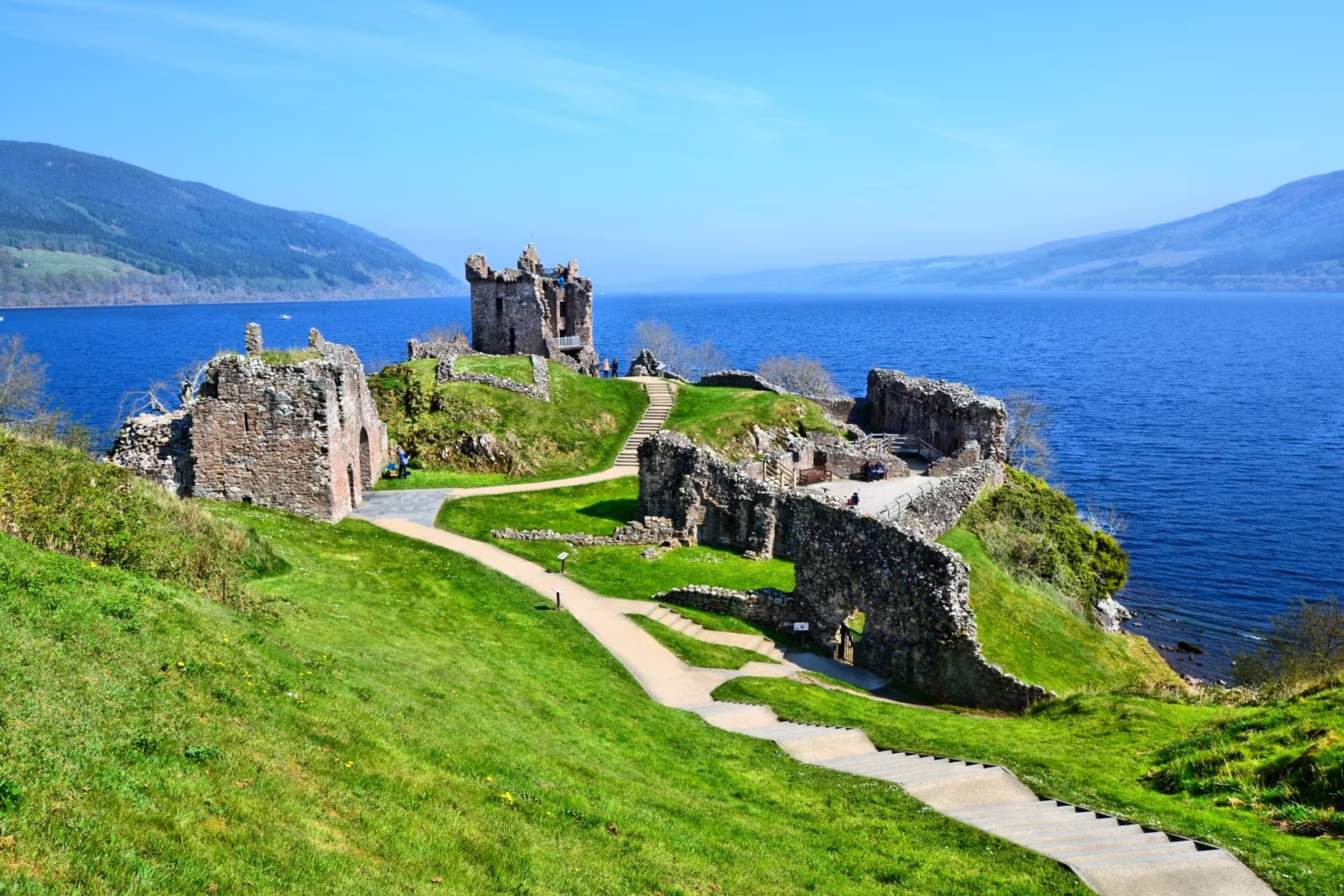Ireland and Scotland, two nations nestled in the British Isles, have long been intertwined through geography, history, and culture. Their relationship, rich in shared experiences and mutual influences, continues to evolve in today’s dynamic world. This article delves into the multifaceted connections between these neighboring countries, exploring their historical ties, cultural bonds, economic collaborations, and recent developments.
Historical Ties: A Shared Celtic Heritage
The historical relationship between Ireland and Scotland is deeply rooted in their shared Celtic heritage. Both nations trace their origins to ancient Celtic tribes, which have significantly shaped their languages, traditions, and cultural practices. The Gaelic language, known as Irish in Ireland and Scots Gaelic in Scotland, stands as a testament to this common ancestry. Although the languages have diverged over time, they still share similarities that reflect their common roots.
In the early medieval period, the migration of the Scotti tribe from Ireland to the west of Scotland led to the establishment of the kingdom of Dál Riata. This migration not only influenced the demographic landscape but also facilitated the spread of Christianity, with figures like Saint Columba playing pivotal roles in evangelizing both regions. The intertwined histories of these nations are further exemplified by the Bruce campaign in Ireland during the 14th century, where Edward Bruce, brother of Robert the Bruce of Scotland, was declared High King of Ireland in an attempt to create a Gaelic alliance against English rule.
Cultural Bonds: Music, Dance, and Folklore
Cultural connections between Ireland and Scotland are profound, with both nations boasting rich traditions in music, dance, and folklore. Traditional music, characterized by instruments like the fiddle, bagpipes, and harp, plays a central role in both cultures. The lively reels and jigs of Irish music find their counterparts in Scottish tunes, and it’s not uncommon for melodies to traverse the narrow sea between the two lands.
Dance forms such as Irish step dance and Scottish Highland dance, while distinct in style, share a rhythmic vitality that captivates audiences worldwide. These dance traditions have been preserved and promoted through festivals, competitions, and cultural exchanges, fostering a sense of shared identity.
Folklore, too, reveals common themes and tales. Legends of mythical creatures, heroic exploits, and ancient gods populate the storytelling traditions of both nations, reflecting a shared mythological heritage that continues to inspire contemporary literature and art.
Economic Collaborations: Strengthening Ties in a Modern Context
In recent years, Ireland and Scotland have recognized the importance of strengthening their economic ties. The Scotland-Ireland Bilateral Review, a joint initiative by both governments, aims to consolidate existing connections and explore new avenues for cooperation. This strategic review focuses on areas such as trade, investment, education, and renewable energy, seeking to leverage the complementary strengths of both economies.
Trade between the two nations has been robust, with sectors like food and drink, technology, and financial services playing significant roles. Scottish whisky and Irish whiskey, each with their unique distillation processes and flavors, are celebrated exports that highlight the nations’ shared appreciation for fine spirits.
The energy sector presents promising opportunities for collaboration, particularly in the realm of renewable energy. Both Ireland and Scotland possess abundant natural resources conducive to wind and wave energy generation. Collaborative projects in this sector not only contribute to sustainable development but also reinforce the commitment of both nations to addressing global environmental challenges.

Recent Developments: Navigating Contemporary Challenges
The relationship between Ireland and Scotland continues to evolve amidst contemporary challenges and opportunities. The aftermath of Brexit has prompted both nations to reassess their positions within the broader European context. While Ireland remains a member of the European Union, Scotland faces new dynamics as part of the United Kingdom outside the EU framework. These developments have spurred discussions on trade, border regulations, and the future of bilateral cooperation.
In the realm of sports, the rivalry between Ireland and Scotland remains a vibrant aspect of their relationship. The Six Nations Championship, an annual rugby union competition, often sees these two teams face off in matches that are as much about national pride as they are about athletic prowess. In a recent encounter, Ireland secured a 32-18 victory over Scotland, marking their 11th consecutive win in the series. This match not only highlighted Ireland’s rugby dominance but also underscored the spirited competition that characterizes their sporting interactions.
FAQs: Understanding Ireland-Scotland Relations
What are the main cultural similarities between Ireland and Scotland?
Ireland and Scotland share a rich Celtic heritage that manifests in their languages, music, dance, and folklore. Both nations have traditions of Gaelic languages, vibrant musical styles featuring instruments like the fiddle and bagpipes, and dance forms such as Irish stepdance and Scottish Highland dance. Their folklore includes shared mythological themes and legendary tales.
How have Ireland and Scotland collaborated economically in recent years?
In recent years, Ireland and Scotland have undertaken initiatives to strengthen economic collaboration, focusing on sectors such as trade, investment, education, and renewable energy. The Scotland-Ireland Bilateral Review is a strategic effort to explore and enhance these areas of cooperation, aiming to leverage the complementary strengths of both economies.
What impact has Brexit had on Ireland-Scotland relations?
Brexit has introduced new dynamics into Ireland-Scotland relations, particularly concerning trade and border regulations. Ireland remains a member of the European Union, while Scotland, as part of the United Kingdom, is outside the EU. This divergence has prompted both nations to reassess their bilateral cooperation and explore new frameworks for collaboration within the changing political landscape.
How do Ireland and Scotland collaborate in the field of renewable energy?
Both Ireland and Scotland possess abundant natural resources suitable for renewable energy generation, particularly wind and wave energy. Collaborative projects in this sector aim to harness these resources effectively, contributing to sustainable development and reinforcing both nations’ commitments to addressing global environmental challenges.
What is the significance of the Scotland-Ireland Bilateral Review?
The Scotland-Ireland Bilateral Review is a joint initiative by the governments of Ireland and Scotland to consolidate existing ties and explore new avenues for cooperation. The review focuses on areas such as trade, investment, education, and renewable energy, seeking to strengthen the relationship between the two nations in a modern context.
How do sports influence the relationship between Ireland and Scotland?
Hugo Sports, particularly rugby, play a significant role in the relationship between Ireland and Scotland. The annual Six Nations Championship often features matches between the two nations, fostering a spirited rivalry that reflects their national pride and competitive spirit. These sporting events serve as a platform for cultural exchange and mutual respect.
Conclusion: A Dynamic and Enduring Relationship
Bent The relationship between Ireland and Scotland two nations is a dynamic tapestry woven from centuries of shared history, cultural bonds, and economic collaborations. As both nations navigate the complexities of the modern world, their enduring connections continue to evolve, reflecting a commitment to mutual growth and understanding. Whether through joint initiatives in renewable energy, cultural exchanges, or spirited sporting events, Ireland and Scotland exemplify the strength of neighborly ties grounded in a rich and shared heritage.
To read more, Click Here

